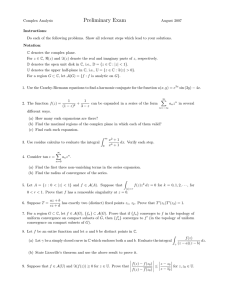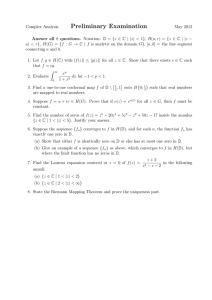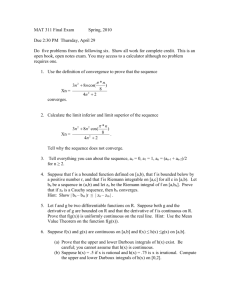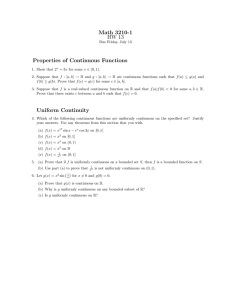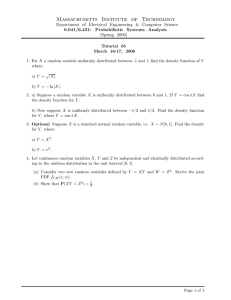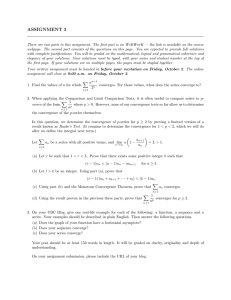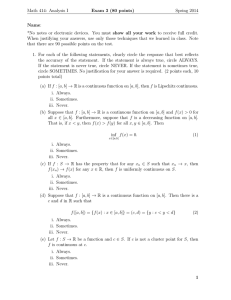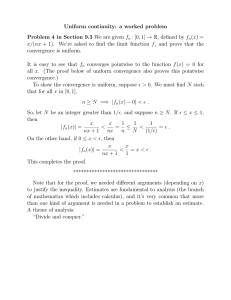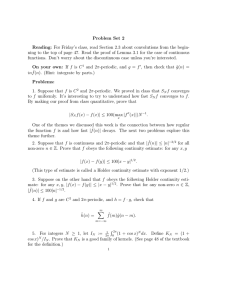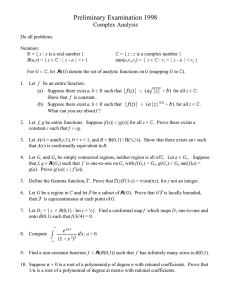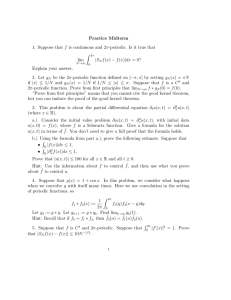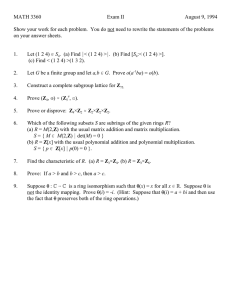MATH 5320 Exam I October 6, 1997 TakeHome
advertisement
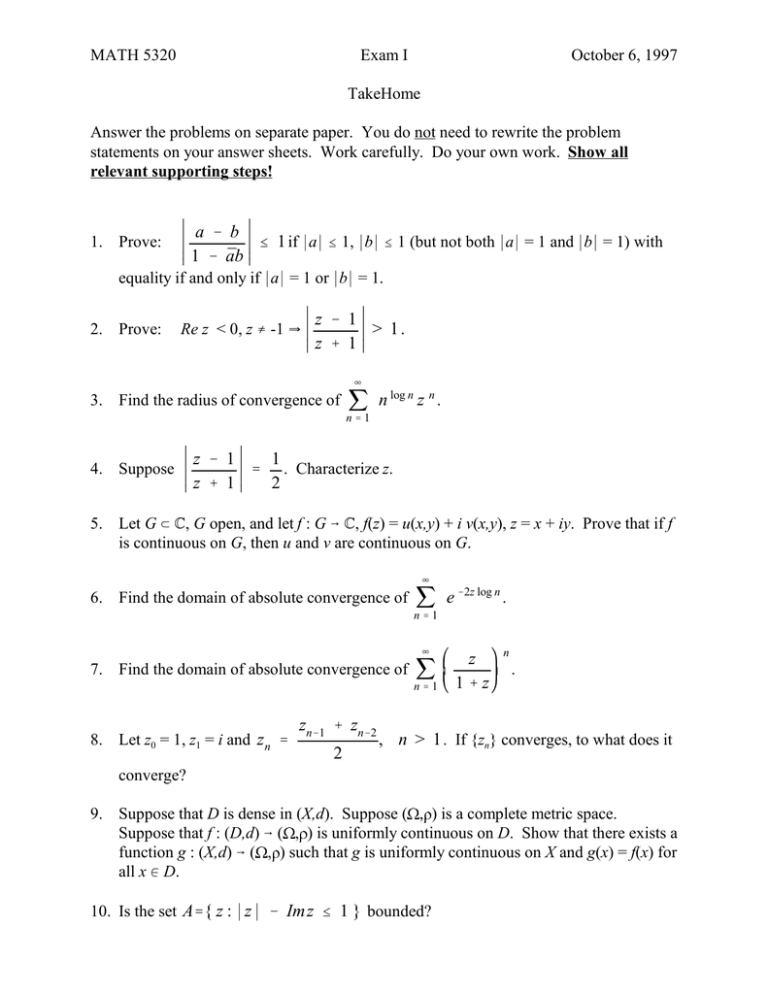
MATH 5320
Exam I
October 6, 1997
TakeHome
Answer the problems on separate paper. You do not need to rewrite the problem
statements on your answer sheets. Work carefully. Do your own work. Show all
relevant supporting steps!
1. Prove:
a & b
/0 1 & āb
0
/0 # 1 if *a* # 1, *b* # 1 (but not both *a* = 1 and *b* = 1) with
0
equality if and only if *a* = 1 or *b* = 1.
2. Prove:
z & 1
Re z < 0, z ú -1 Y /
> 1.
00 z % 1 /00
4
3. Find the radius of convergence of j n log n z n .
n'1
z & 1
1
' . Characterize z.
4. Suppose /
00 z % 1 /00
2
5. Let G d Ü, G open, and let f : G 6 Ü, f(z) = u(x,y) + i v(x,y), z = x + iy. Prove that if f
is continuous on G, then u and v are continuous on G.
4
6. Find the domain of absolute convergence of j e &2z log n .
n'1
4
7. Find the domain of absolute convergence of j
n'1
8. Let z0 = 1, z1 = i and z n '
zn&1 % zn&2
2
z
1%z
n
.
, n > 1 . If {zn} converges, to what does it
converge?
9. Suppose that D is dense in (X,d). Suppose ( , ) is a complete metric space.
Suppose that f : (D,d) 6 ( , ) is uniformly continuous on D. Show that there exists a
function g : (X,d) 6 ( , ) such that g is uniformly continuous on X and g(x) = f(x) for
all x 0 D.
10. Is the set A'{ z : * z * & Imz # 1 } bounded?
